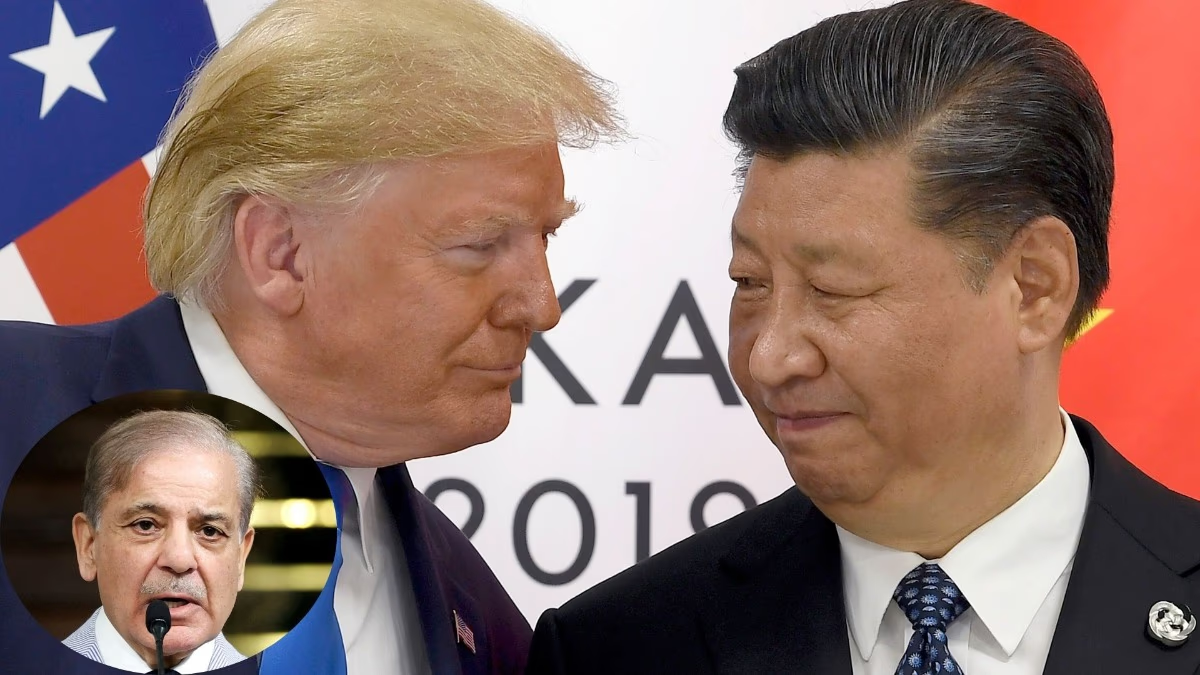During India's Operation Sindhur, Pakistan's collusion with China was starkly evident. Behind the scenes, China has continued to provide financial and military assistance to Pakistan. Addressing this, former Air Force Captain Ajay Ahlawat humorously labeled Pakistan as the master of deception, a nation that has historically exploited global powers to its advantage.
Deceptions with China As Well
Responding to an article by American political scientist C. Christine Fair, Ahlawat stated, 'Pakistan excels at cunning. It tricks everyone and spares none. It capitalized on America's generosity for decades while fooling them. Now, it will do the same with China; it's only a matter of time.'
Ahlawat's remarks come after Christine Fair shared an article about Washington's recurrent misjudgment regarding Pakistan, despite its long-standing record of duplicity. In her article entitled 'How Pakistan Misguides Americans,' Fair highlights how U.S. officials repeatedly get drawn into Pakistan's fabricated narratives, driven by soft power and strategic manipulation.
Deceiving Americans
Fair writes in her article, 'Over the past few years, I've met several officers from the Indian Embassy in Washington. All have asked at some point: How does Pakistan continue to deceive Americans? How does this rogue nation, supporting terrorism and being an irresponsible nuclear weapon state, secure billions in aid and military assistance?'
She explains that Pakistan's strength doesn't just lie in its nuclear weapons or terrorist networks, but also in how it garners sympathy through hospitality, well-spoken lies, and military tourism. According to her, many American officials engaging with Pakistan are well-meaning but naive, often lacking a grasp on the regional complexities.
Pakistan's Jihad Strategy
Fair argues that Pakistan's retainer state strategy traces back to the Soviet invasion of Afghanistan. Citing research by Hussain Haqqani and others, she notes that Pakistan initiated its jihad strategy as early as 1973-74, during the tenure of Prime Minister Zulfikar Ali Bhutto, long before the U.S. engaged in the regional anti-Soviet efforts.
She writes, 'Pakistan launched its jihad policy between 1973 and 1974 when Mohammed Daoud Khan overthrew the popular king, Zahir Shah. At that time, civilian dictator Bhutto established the ISI Afghanistan cell to groom Islamists. By the time the Soviets crossed the Amu Darya on Christmas Day 1979, the major Mujahideen factions were already formed. Pakistan did all this independently because manipulating events in Afghanistan has been a persistent strategic goal since 1947.'
A History of Repeated Treaty Breaches
Fair also highlights Pakistan’s strategic contradictions, emphasizing its efforts to appease Communist China while simultaneously being part of anti-Communist accords and neglecting treaties in major American wars. Despite accusing the United States of failing to assist during the India-Bangladesh war, Pakistan curried favor with Communist China while involving itself in accords meant to counter communism.
Moreover, Fair remarked that despite its SEATO agreements with the U.S., Pakistan did not participate in the Korean or Vietnam Wars and avoided nominating China as an aggressor. She further notes that Pakistan consistently rebranded its geopolitical significance to secure assistance for its political objectives, particularly in Afghanistan.
Facilitator of Terrorists
She mentioned that Pakistan has long played a double game in the war on terror, positioning itself as a key ally while sheltering and supporting the terrorist groups it pledged to combat. Despite receiving billions in U.S. aid since 2001, Pakistan safeguarded Taliban leaders and the Haqqani Network, enabling cross-border attacks on U.S. and NATO forces in Afghanistan.




